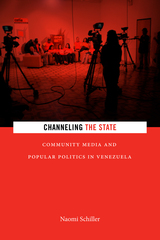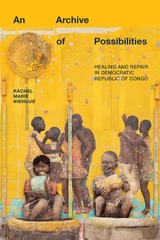2 books about Channeling

Channeling the Past
Politicizing History in Postwar America
Erik Christiansen
University of Wisconsin Press, 2013
After the turmoil of the Great Depression and World War II, Americans looked to the nation’s more distant past for lessons to inform its uncertain future. By applying recent and emerging techniques in mass communication—including radio and television programs and commercial book clubs—American elites working in media, commerce, and government used history to confer authority on their respective messages.
With insight and wit, Erik Christiansen uncovers in Channeling the Past the ways that powerful corporations rewrote history to strengthen the postwar corporate state, while progressives, communists, and other leftists vied to make their own versions of the past more popular. Christiansen looks closely at several notable initiatives—CBS’s flashback You Are There program; the Smithsonian Museum of American History, constructed in the late 1950s; the Cavalcade of America program sponsored by the Du Pont Company; the History Book Club; and the Freedom Train, a museum on rails that traveled the country from 1947 to 1949 exhibiting historic documents and flags, including original copies of the U.S. Constitution and the Magna Carta.
It is often said that history is written by the victors, but Christiansen offers a more nuanced perspective: history is constantly remade to suit the objectives of those with the resources to do it. He provides dramatic evidence of sophisticated calculations that influenced both public opinion and historical memory, and shows that Americans’ relationships with the past changed as a result.
With insight and wit, Erik Christiansen uncovers in Channeling the Past the ways that powerful corporations rewrote history to strengthen the postwar corporate state, while progressives, communists, and other leftists vied to make their own versions of the past more popular. Christiansen looks closely at several notable initiatives—CBS’s flashback You Are There program; the Smithsonian Museum of American History, constructed in the late 1950s; the Cavalcade of America program sponsored by the Du Pont Company; the History Book Club; and the Freedom Train, a museum on rails that traveled the country from 1947 to 1949 exhibiting historic documents and flags, including original copies of the U.S. Constitution and the Magna Carta.
It is often said that history is written by the victors, but Christiansen offers a more nuanced perspective: history is constantly remade to suit the objectives of those with the resources to do it. He provides dramatic evidence of sophisticated calculations that influenced both public opinion and historical memory, and shows that Americans’ relationships with the past changed as a result.
[more]

Channeling the State
Community Media and Popular Politics in Venezuela
Naomi Schiller
Duke University Press, 2018
Venezuela's most prominent community television station, Catia TVe, was launched in 2000 by activists from the barrios of Caracas. Run on the principle that state resources should serve as a weapon of the poor to advance revolutionary social change, the station covered everything from Hugo Chávez’s speeches to barrio residents' complaints about bureaucratic mismanagement. In Channeling the State, Naomi Schiller explores how and why Catia TVe's founders embraced alliances with Venezuelan state officials and institutions. Drawing on long-term ethnographic research among the station's participants, Schiller shows how community television production created unique openings for Caracas's urban poor to embrace the state as a collective process with transformative potential. Rather than an unchangeable entity built for the exercise of elite power, the state emerges in Schiller's analysis as an uneven, variable process and a contentious terrain where institutions are continuously made and remade. In Venezuela under Chávez, media activists from poor communities did not assert their autonomy from the state but rather forged ties with the middle class to question whose state they were constructing and who it represented.
[more]
READERS
Browse our collection.
PUBLISHERS
See BiblioVault's publisher services.
STUDENT SERVICES
Files for college accessibility offices.
UChicago Accessibility Resources
home | accessibility | search | about | contact us
BiblioVault ® 2001 - 2024
The University of Chicago Press









